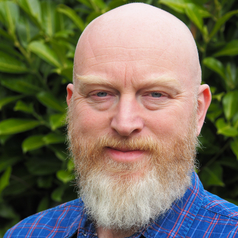The diverse groups of volunteers responding to COVID-19 around the world are a source of positivity and hope.
But volunteers are not simply a source of free labour. Volunteering is both political and influenced by social and cultural factors. Keeping volunteers safe and well demands investment, and how they are engaged and by whom has consequences during and beyond a crisis.
Research on volunteering in countries that have endured protracted crises or have weak health and social care systems provides lessons about volunteering and COVID-19. Volunteering is often seen as something done by someone who is better off than the person they are helping – they are givers to thankful receivers. This is because much research on volunteering and development has focused on international volunteers.
But local volunteers are often all that remain when international aid and humanitarian organisations withdraw due to increased dangers or when infrastructures are too weak to cope.
These local volunteers are not separate from or immune to the violence, health risks or psycho-social impacts they are helping to address. Volunteers can support communities that include their own family members, leading to heightened trauma. In Burundi, for example, volunteering has helped people maintain a sense of identity through decades of conflict.
Volunteering can increase exposure to danger, which might come through increased risk of infection by a virus. But less obviously, it can make volunteers targets of anger because they are the people at the frontline of distributing help. For example, in one case in the Central African Republic, a volunteer was followed home and killed following a dispute over aid distribution.
Volunteering is political
Community volunteering through new and established groups is evolving rapidly in response to COVID-19, supporting the vulnerable and giving a sense of purpose which helps people cope. At the same time, governments and donors need volunteers to deliver services where they lack capacity. The UK government has sought volunteers to help its health service, attracting huge numbers but also frustration at the lack of available tasks.
Volunteering to deliver state or donor goals is not the same as volunteering through small-scale acts of solidarity or to support your local community. Different types of volunteering can, of course, overlap. The local knowledge, proximity and networks of community volunteers can support the efforts of government and humanitarian organisations. This may in turn improve the resourcing of community initiatives. But as research on community health volunteers in Peru shows, government or donor-led volunteer mobilisations can become bureaucratic and top down, leaving local volunteers’ knowledge undervalued.
Mobilising volunteers is more than an issue of logistics. It reflects how the needs of different communities are prioritised, what the state is seen to be responsible for and what counts as “work”.
In an example from before COVID-19, people in one Middle Eastern country were recruited as volunteers but given given a per diem to the level of a salary, sidestepping regulations protecting workers’ rights. More recently, the UK government’s recruitment of volunteers to work alongside paid COVID-19 testers for at least 32 hours a week has been condemned on the basis that it should be paid work.
Volunteering is about care and hope, but is also political. In former Soviet Union countries, volunteering can be associated with histories of state compelled labour. Gender discrimination can be reinforced through participation in volunteering during a crisis, as well as challenged, temporarily or permanently. Research I’ve done with colleagues has charted how women volunteers have undertaken public health outreach activities during crises that they would not normally be permitted to do. In some countries, women have also subverted clothing norms by wearing clothes considered male, to be better suited to the practical tasks of their volunteering.
Not there to permanently fill gaps
Whether a volunteer is a community activist shaping very local responses, or one disbursing state or humanitarian aid, fundamentally alters their relationships with communities and other volunteers. Volunteers may be welcomed as friends, but can also face hostility.
They can be the main way people experience humanitarian aid or the state as it struggles in crises. Yet volunteers often lack protection, training, psycho-social support or insurance should they be harmed.
I am a great believer in what volunteering can do. Calls to volunteer can galvanise people and communities to action, but the label encompasses a diverse set of activities. The COVID-19 crisis has created opportunities for new community relationships and greater local leadership and ownership of development efforts. Volunteers are often referenced as part of this, but there is a risk they are drawn into systems of state and donor delivery far removed from these hopes of local solidarity and challenges to existing power relations.
As societies rebuild during and after COVID-19, emerging networks of solidarity and community-led volunteering must not be permanently undermined by governments and donors repurposing them to fill gaps in existing infrastructures. Some of these gaps are expected given the scale of the crisis, but some are of governments’ own making. Volunteers deserve to be celebrated, but this must not mask past failures to build more equal, fair and resilient societies better able to cope with a pandemic.



 Elon Musk’s Empire: SpaceX, Tesla, and xAI Merger Talks Spark Investor Debate
Elon Musk’s Empire: SpaceX, Tesla, and xAI Merger Talks Spark Investor Debate  FxWirePro- Major Crypto levels and bias summary
FxWirePro- Major Crypto levels and bias summary 































